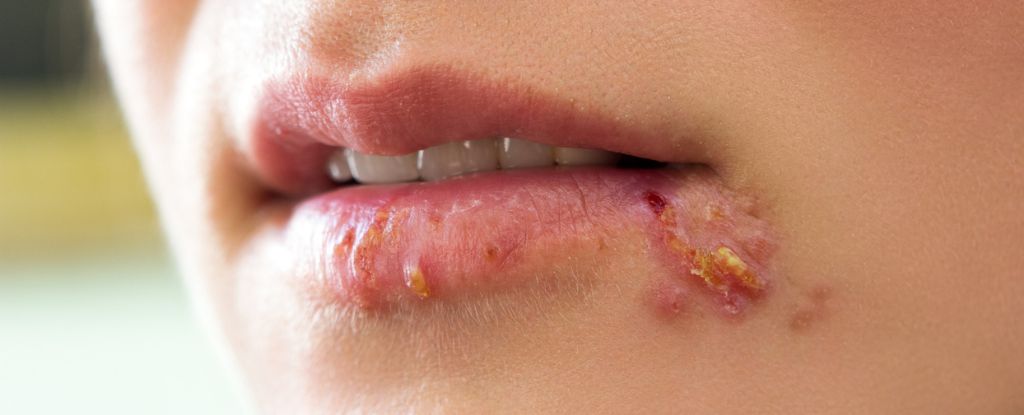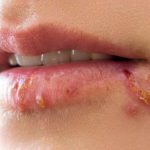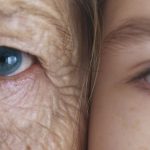
A study suggests that the virus responsible for cold sores might increase the likelihood of developing Alzheimer’s disease.
A recent study conducted in Sweden on over a thousand 70-year-olds has revealed that individuals exposed to herpes simplex virus type 1 (HSV-1) are at twice the risk of developing dementia.
The correlation remained consistent even when considering the two most significant factors associated with Alzheimer’s disease: age and a genetic variation known as APOE-4. These findings highlight the potential role of common viral infections in contributing to cognitive decline.
As of today, around 80% of Swedish adults harbor HSV-1 antibodies, whether consciously aware or not, indicating prior exposure to the virus and activation of their immune systems.
Although some individuals with oral herpes remain asymptomatic, others experience occasional episodes of inflammation and blisters around the mouth and lips. Regardless of the outward appearance of this lifelong infection, recent findings from Sweden indicate that HSV-1 may be exerting hidden effects internally.
It is exciting that the results confirm previous studies,
stated epidemiologist Erika Vestin from Uppsala University in Sweden. Source
More and more evidence is emerging from studies that, like our findings, point to the herpes simplex virus as a risk factor for dementia.
The underlying factors contributing to dementia remain one of the most extensively researched enigmas in contemporary medical science.
Alzheimer’s disease is the predominant form of dementia, characterized by abnormal protein aggregates in the brain, though not consistently.
Neuroscientists and pharmaceutical researchers have long prioritized efforts to inhibit the formation of these protein aggregates in hopes of mitigating cognitive decline, yet with limited success.
Some specialists now consider them a misleading distraction. These aggregates, they propose, likely serve a purpose in the brain, potentially contributing to the immune response of the central nervous system by repairing damage or warding off harmful pathogens.
Consequently, certain forms of Alzheimer’s disease might indicate an ‘overactive’ immune reaction to external microbes.
The notion that infections could potentially trigger certain forms of Alzheimer’s disease was originally proposed as far back as 1907. However, this hypothesis faced significant skepticism and was met with “considerable resistance” from the scientific community for many years. Only recently has it gained acceptance as a viable avenue of research. Source
During the 1990s, researchers first identified elevated levels of HSV-1 DNA in the brains of deceased individuals with Alzheimer’s disease. Subsequently, in 2008, a study revealed that HSV-1 DNA was present in 90% of the protein plaques found in postmortem brains of Alzheimer’s patients. Furthermore, 72% of the HSV-1 DNA in the brain was located within these plaques.
The results indicated a strong association between the immune response to the herpes virus and cognitive deterioration.
Earlier this year, a research analysis of approximately 500,000 medical records revealed a potential link between certain serious viral infections, such as encephalitis and pneumonia, and an elevated risk of neurodegenerative conditions like Parkinson’s disease or Alzheimer’s.
However, to date, there remains insufficient evidence to conclusively establish the involvement of pathogens like HSV-1 in cognitive decline. While it is becoming more prevalent, historically, neuroscience research teams have not engaged with experts in microbiology or virology.
While certain studies have indicated a correlation between HSV-1 antibodies and dementia risk, others have not observed such a connection.
Scientists from Uppsala University and Umeå University in Sweden clarified the situation by tracking younger patients over an extended duration and ensuring age-matching during analysis.
Out of the 1,002 adult participants tracked over a span of 15 years, 82% tested positive for HSV-1 antibodies. These individuals were twice as likely to experience dementia during the study period compared to those without HSV-1 antibodies.
Notably, individuals with the genetic risk factor APOE-4 did not exhibit a higher likelihood of experiencing cognitive decline associated with HSV-1 antibodies.
The results oppose earlier studies indicating that the APOE genetic variant might worsen the potential effects of HSV-1 on the brain’s immune response.
What’s special about this particular study is that the participants are roughly the same age, which makes the results even more reliable since age differences, which are otherwise linked to the development of dementia, cannot confuse the results,
says Vestin.
Vestin and her colleagues advocate for randomized controlled trials to explore whether herpes treatment could potentially delay or prevent the onset of dementia. However, past attempts to secure funding for clinical trials investigating antivirals and dementia have been declined by funding organizations.
One of the initial phase II clinical trials, currently ongoing, assessing the impact of a herpes treatment on Alzheimer’s disease, is scheduled to conclude in December 2024.
Vestin expresses hope that such findings could propel dementia research towards early-stage treatment using common anti-herpes virus medications or even prevent the onset of the disease.
The research findings were documented in the Journal of Alzheimer’s Disease.





